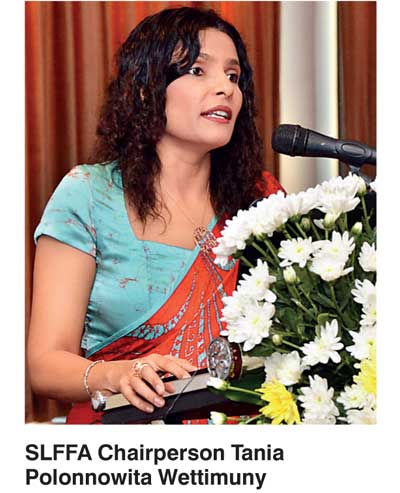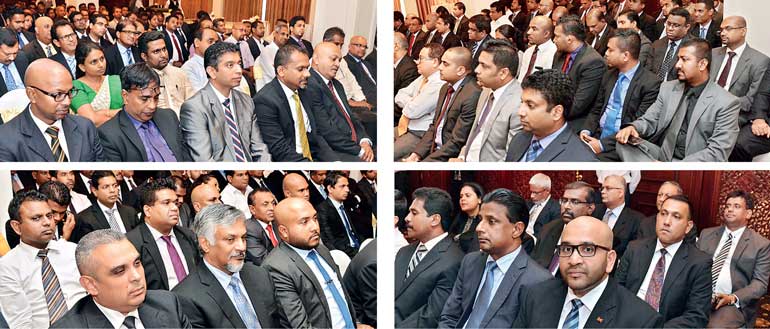Saturday Feb 21, 2026
Saturday Feb 21, 2026
Monday, 11 July 2016 00:00 - - {{hitsCtrl.values.hits}}
 By Himal KotelawalaThe controversial container weight declaration regulation issued by the International Maritime Organisation that came into effect last week is fair when vessel safety is taken into consideration, Sri Lanka Logistics and Freight Forwarders’ Association (SLLFFA) Chairperson Tania Polonnowita Wettimuny said.Speaking to Daily FT on the sidelines of the 35th annual general meeting of the SLLFFA on Wednesday, Wettimuny said that her association was in favour of the regulation on grounds of safety, while acknowledging that it could hinder ease of doing business.
By Himal KotelawalaThe controversial container weight declaration regulation issued by the International Maritime Organisation that came into effect last week is fair when vessel safety is taken into consideration, Sri Lanka Logistics and Freight Forwarders’ Association (SLLFFA) Chairperson Tania Polonnowita Wettimuny said.Speaking to Daily FT on the sidelines of the 35th annual general meeting of the SLLFFA on Wednesday, Wettimuny said that her association was in favour of the regulation on grounds of safety, while acknowledging that it could hinder ease of doing business.
Last week, the Sri Lanka Shippers’ Council (SLSC) vowed to protest the contentious regulation at the highest international levels, charging that foreign service providers had turned it into a ‘money making racket’. Their chief gripe with it, as published in this newspaper on 1 July, was that it would allow international service-providers to charge a registration fee, ranging from $ 25 to $ 50, from local shippers when submitting a container weight certificate – i.e. its verified gross mass certificate – online. Some international freight forwarding companies, Daily FT reported last week, had made it mandatory for shippers to pay this registration fee.
The SLLFFA, however, appears to not share this view.
“The verified gross mass is currently happening as well. The only difference now is that they want to ensure the safety of the vessel. Moving forward, the shipper has to bring the certificate before they hand over the cargo to the Ports Authority or to any of the private terminals,” Wettimuny told Daily FT.
Commenting on the concerns raised by the shippers’ community, Wettimuny said freight forwarders will not be charging a fee from shippers, and that any charge would be in the form of a reimbursement for weighing scales and the like service providers would be charging them.
“We’re not going to charge anything,” she said.
With regard to the registration fee when submitting the verified gross mass certificate via an online portal, Wettimuny said it’s the decision of the Director General of Merchant Shipping (DGMS).
“He’s our regulatory body. We have to register ourselves. I think it’s fair to ask somebody to register. If you’re going to sign off on a certificate, you have to register. I think it’s a fair call,” she said.
However, said Wettimuny, the charge levied by the DGMS is up for discussion.
“I’m sure he’ll come to an agreement with all the service providers in order to arrive at a nominal fee,” she said.
When asked if she thought this could still hinder ease of doing business, Wettimuny conceded, but reiterated that since safety was a priority, it had to be done.
“I’m in favour in respect of safety, and I think if you’re sending something, you should know the weight of the goods. You are the declarant. If you’re the declarant, then you should know the weight. I think it’s fair. What is not clear is the process. We need to find a very simplified process, so it won’t be a hindrance,” she said.
Pix by Upul Abayasekara
